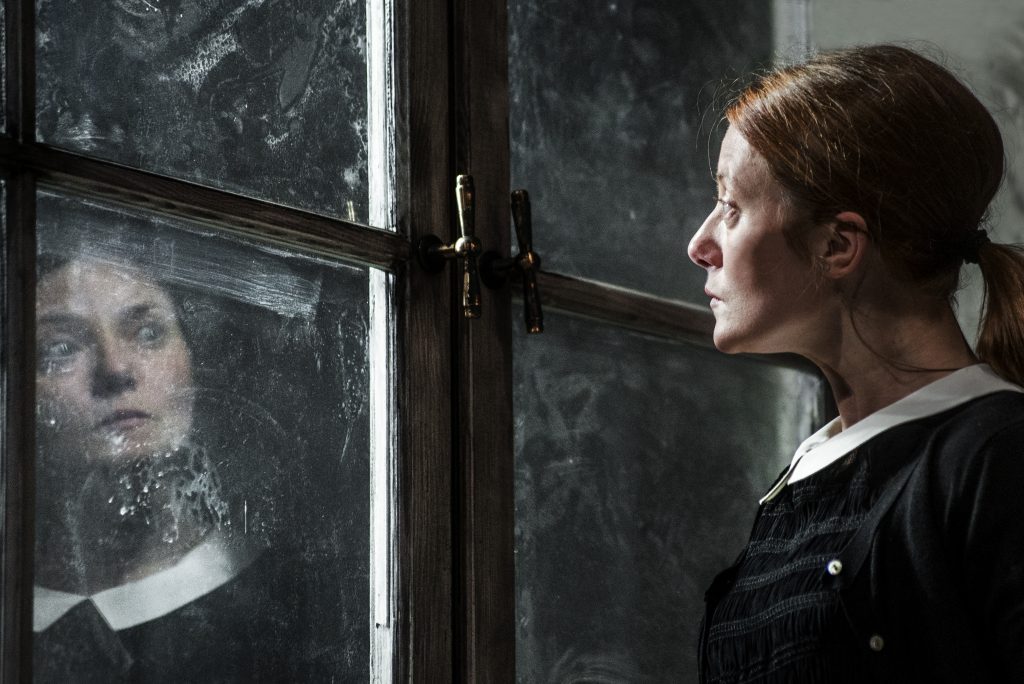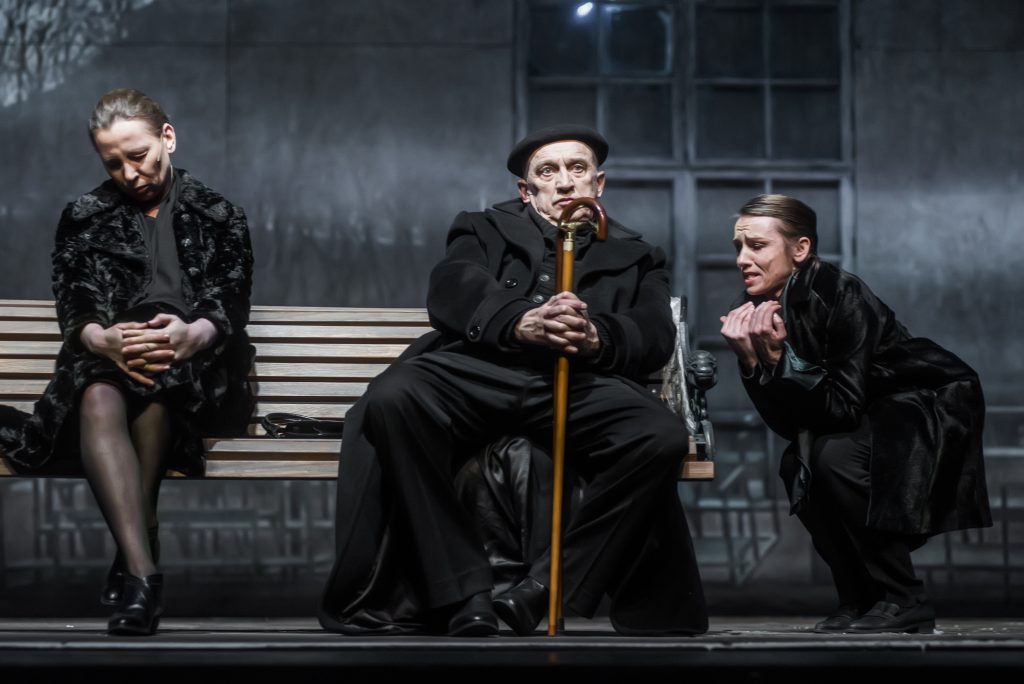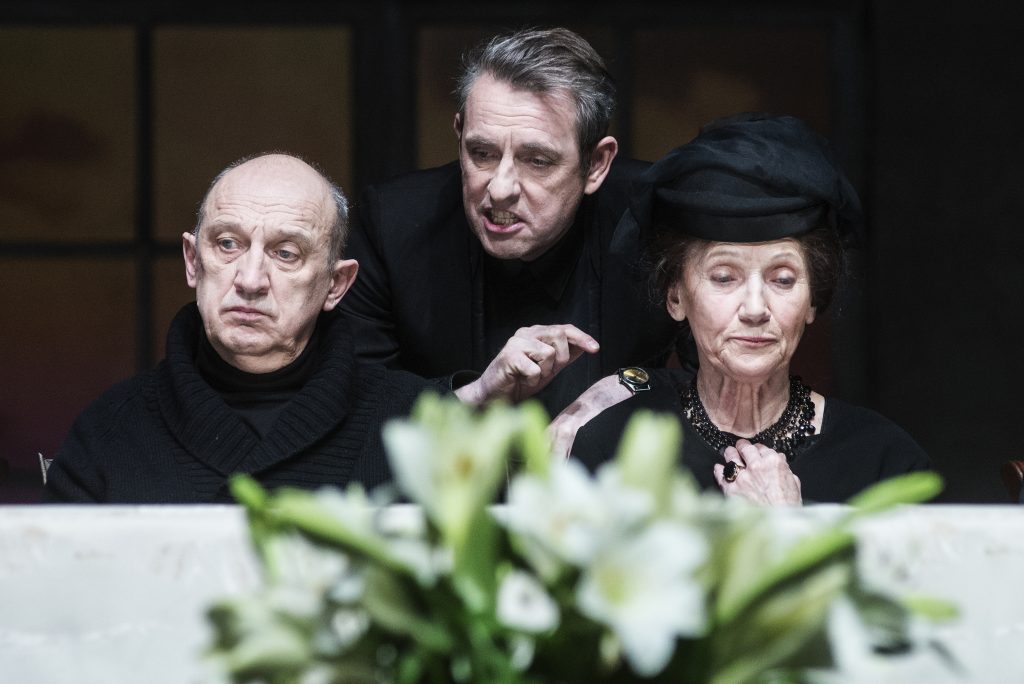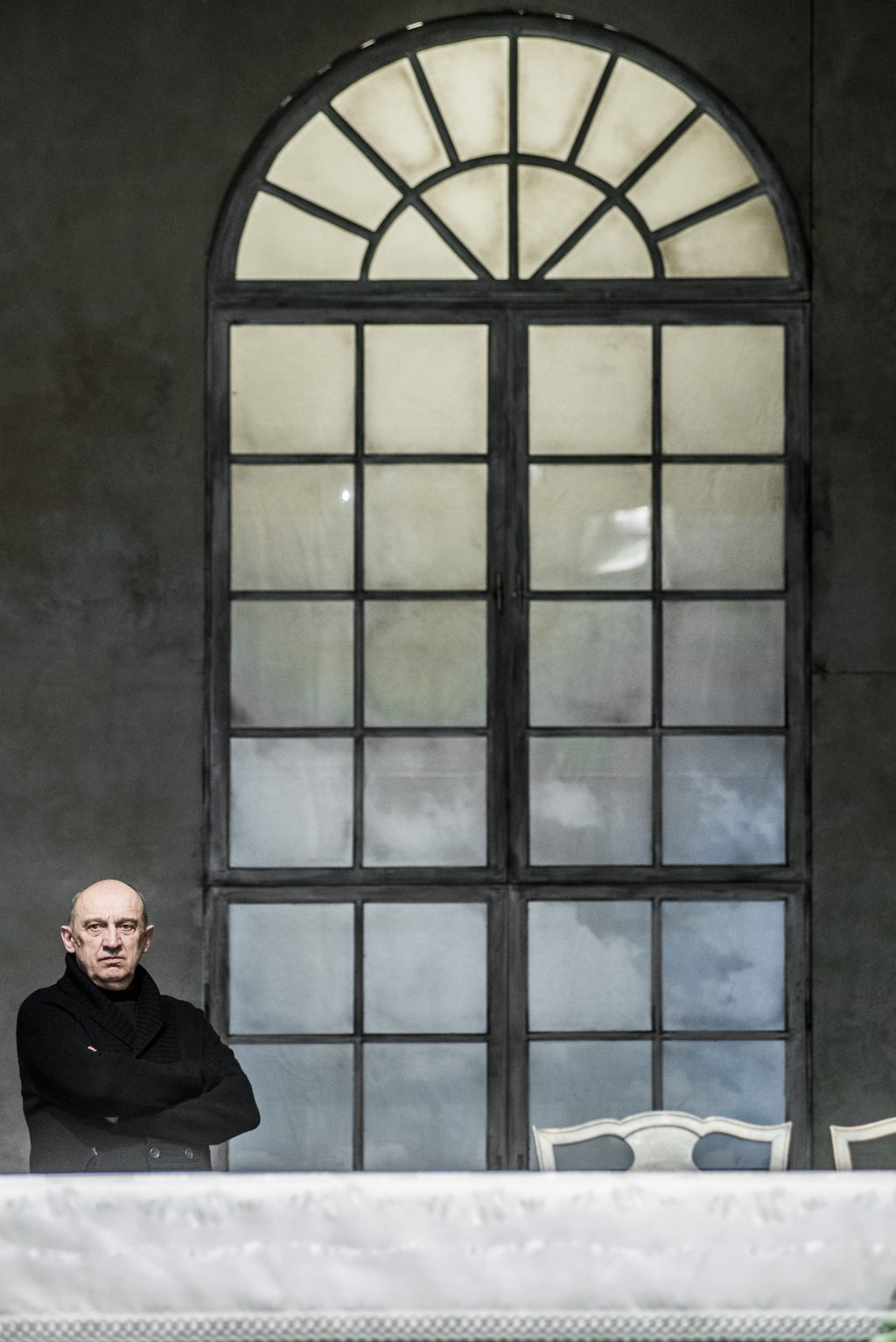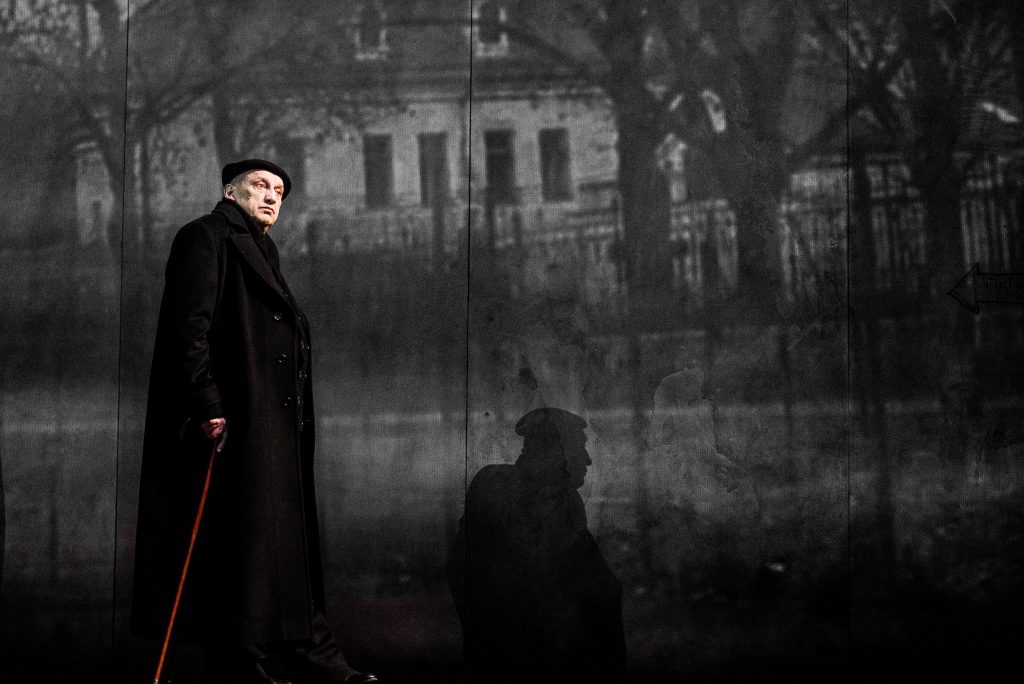Events
Lithuanian National Theatre in VilniusHeroes’ Square
Krystian Lupa
CASTValentinas Masalskis, Viktorija Kuodytė, Eglė Mikulionytė, Arūnas Sakalauskas, Eglė Gabrėnaitė, Rasa Samuolytė, Toma Vaškevičiūtė, Doloresa Kazragytė, Vytautas Rumšas, Neringa Bulotaitė, Povilas Budrys
PremiereMarch 27, 2015
LanguageLithuanian with Polish and English surtitles
On March 15, 1938, on Heroes’ Square, the main square in Vienna, Adolph Hitler declared about the Anschluss Österreichs, or the annexation of Austria by Germany. 50 years later in a flat close to Heroes’ Square the Schuster family holds a reunion. Professor Schuster, a thinker and a philosopher who fled Nazis and left Austria for Oxford, was asked by Vienna Mayor to return to his university in the 60s. However, back in Vienna he sees no other way out except suicide. It is because the situation in contemporary Austria is “much worse than 50 years ago.” Joseph Schuster’s fate in the political drama openly exposes the moral and spiritual picture of the situation in Austria. Bernhard’s language, full of poetry and music, is marked by a characteristic principle of form, i.e., a carefully measured overstatement. The art of exaggeration is Bernhard’s instrument in revealing the detailed view of the current-day situation, which makes the audiences laugh and weep at the same time.
Bernhard chooses one of his favourite entry points to open the play: death of a protagonist and an investigation of the details that have led to it. The character dies in the very beginning of the play. As usual in his plays, the death is a suicide. It opens up a mysterious empty space with enigmatic signs, while the family of the deceased are forced to question them. In Heroes’ Square this model is exploited to a much exaggerated extent.
A scholar of Jewish origin returns to his native country having fled the Nazi occupation and after years spent in England. Homeland turns out to be a “deadly space.” We fall into the realm of spiritual curse and destroyed compassion. The society that lives in this realm is a spiritual mutant. Professor Schuster’s suicide becomes an act of disclosure of this truth. It brings about ideas that previously have not been possible to conceive, it brings about words and sentences that previously have not been voiced. Scars of old wounds are being open time and again, and places irrevocably lost to humanity are revealed. Society that has cradled a terrible crime, has mutated; it’s impossible to return here, to root oneself, to find one’s meaning of life and one’s homeland. There is no one to clean the decay, which has induced mysterious shifts in the human souls and social processes. Schuster’s death is a revelation of the terrible monster face. The human texture is not developing here; this place is characterised by numbness, which pretends to be alive. Welfare, a mask of human civilization, makes it possible to hide behind it and to create a deception of mature compassion. However, the so-called humanity is a deadly neologism…
Costume designer
Piotr SKIBA
Creative Associate, author of video projections
Łukasz TWARKOWSKI
Composer
Bogumił MISALA
Directors assistants
Giedrė Kriaučionytė, Adam A. Zduńczyk
Project manager
Vidas Bizunevičius
Co-production
International Theatre Festival “Divine Comedy” in Kraków, Poland
Sponsors
Ministry of Culture of the Republic of Lithuania, Lithuanian Council for Culture Polish Institute in Vilnius
2016 awarded by 4 Golden stage crosses (Highest Lithuanian theatre award): Best performance, best leading actor, best leading actress and best video design.
